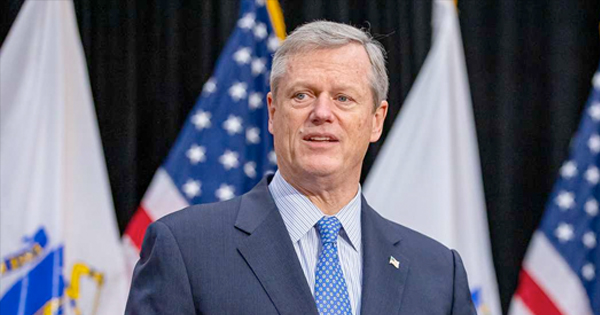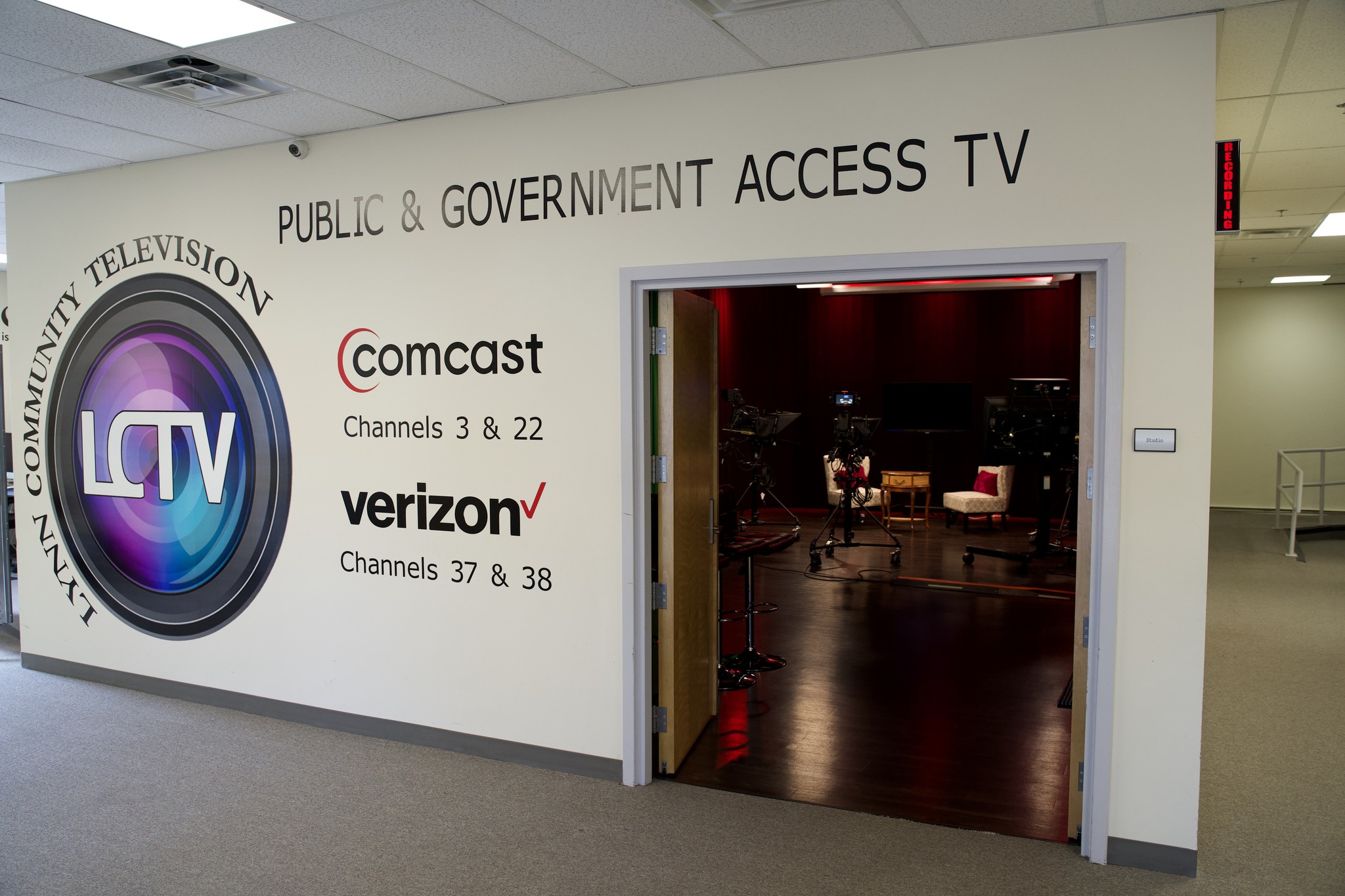
The FORWARD bill will make investments in all 351 cities and towns in Massachusetts
Today, Governor Charlie Baker filed legislation to make $3.5 billion in investments to support Massachusetts’s path forward as the Commonwealth transitions into a post-pandemic world, including projects to strengthen state infrastructure, create jobs and invest in all 351 cities and towns in the Commonwealth.
The legislation, An Act Investing in Future Opportunities for Resiliency, Workforce, and Revitalized Downtowns (FORWARD) includes $2.3 billion in funding from the federal American Rescue Plan Act (ARPA) and over $1.256 billion in capital bond authorizations.
The announcement was made today in Lynn at Breakwater North Harbor, a 331-unit apartment community that broke ground in 2019 and was built in part as a result of a $1.2 million MassWorks grant to fund roadway and water infrastructure improvements, and a $1 million Seaport Economic Council grant to ensure long-term integrity of the adjacent shoreline along North Harbor.
The legislation filed today would direct approximately $27 million to Lynn including $13 million for improvements to the Lynn Heritage State Park, $10 million for the South Harbor waterfront redevelopment site on the Lynnway, and millions more for traffic and safety improvements at the intersection of Broad and Washington Streets, as well as for local economic recovery in the city.
“The Commonwealth has an opportunity to make significant investments now to help our communities and local economies emerge stronger in a post-pandemic world,” said Governor Charlie Baker. “The FORWARD legislation will make investments in every municipality in Massachusetts, strengthening downtowns, improving the resiliency of infrastructure and giving workers the tools they need to succeed in today’s economy. We look forward to working with the Legislature to take action on this bill quickly to ensure cities and towns receive much-needed recovery funding.”
“This bill will support hundreds of local projects, whether through funding to improve green spaces or grants to support economic development,” said Lt. Governor Karyn Polito. “Making these local investments will help cities and towns fortify their infrastructure and redevelop their downtowns.”
Full press conference
Speaking portion begins at 3 min, 55 seconds with Mayor Jared Nicholson.
The FORWARD bill includes $1.2 billion in ARPA funds for climate resiliency and preservation efforts. This includes a $750 million investment in the Commonwealth’s clean energy industry, building on Governor Baker’s October 2021 proposal. The $750 million will be utilized for a variety of areas within the sector, such as electric vehicle rapid charging stations at Logan International Airport, the expansion of the MassCEC Wind Technology Training Center in Charlestown, over $70 million in investments related to the New Bedford Marine Terminal, and a greater focus on higher education and workforce training in an effort to support the burgeoning clean energy industry. The bill also proposes $413 million to support over 100 projects across state parks and trails, water and sewer, and environmental infrastructure grant programs.
The FORWARD legislation proposes nearly $970 million for investments to support revitalizing the Commonwealth’s downtowns and communities, including $318 million in ARPA funding and $650 million in bond authorization. This includes $550 million for the MassWorks program, including $400 million in reauthorization and $147 million in ARPA funds to support 94 local projects. Nearly 250 municipalities will receive downtown recovery grants totaling $108 million. The Baker-Polito Administration commissioned a Future of Work report last year that found that downtowns will look fundamentally different coming out of the COVID-19 pandemic, as many people have changed how and where they work. This funding will help municipalities adapt to this new reality.
The legislation also includes $325 million in ARPA funding for workforce efforts, including $300 million for the Unemployment Trust Fund to address unemployment overpayments. The HireNow program, which provides grants to employers to train and hire new workers, would receive $25 million.
The FORWARD bill includes $270 million in authorization to support housing production across the Commonwealth, including affordable rental housing production and rehabilitation, public housing, climate resilient housing, and transit-oriented development. The bill also makes several policy proposals to increase housing production, including an increase of the cap on the Housing Development Incentive Program from $10 million to $30 million.
The bill proposes significant funding to support the Commonwealth’s innovation economy including $50 million for a new competitive and secure future innovation program to make strategic investments in purpose-driven research, technology development, and innovation, and in emerging technologies such as artificial intelligence and machine learning (AI/ML), robotics, quantum information science, cybersecurity, communications, and digital health.
This legislation would allow the Massachusetts Convention Center Authority to sell the Hynes Convention Center, with proceeds from the sale going to affordable housing development and the Back Bay area. Occupancy levels at the Hynes fluctuated around 60% before the pandemic, and numbers have still not recovered.
“The FORWARD legislation brings together critical capital spending authorizations and key investments backed by remaining ARPA dollars to propose a transformative economic development and environmental spending package that benefits every city and town in the Commonwealth,” said Secretary of Administration and Finance Michael J. Heffernan. “The hundreds of projects supported will invigorate local economies and infrastructure at a crucial point in time, and we look forward to working with the Legislature to pass this bill.”
“Throughout the pandemic, the partnerships we’ve been able to build with individual communities, the business community, academia, and across state government became more important than ever, and this legislation reflects that spirit of collaboration by targeting funding toward key priorities in all cities and towns across the Commonwealth,” said Housing and Economic Development Secretary Mike Kennealy. “In addition, this bill lays out a thoughtful strategy that will accelerate our transition to a post-pandemic world by making the kinds of investments that support our downtowns, our workforce, core infrastructure, and the state’s housing needs with the urgency this situation calls for.”
“Through the Baker-Polito Administration’s continued efforts, Massachusetts leads the nation in taking action on climate change, including the advancement of climate resiliency investments at the state and local level and developing and deploying clean energy solutions at scale,” said Energy and Environmental Affairs Secretary Kathleen Theoharides. “With the filing of the FORWARD Act, we will expand on these efforts by investing $750 million to further support the clean energy industry by fostering innovation and technology advancements, continuing the growth of a homegrown clean energy and climate workforce, and beginning construction of important resilient infrastructure improvements.”
ARPA funds must be committed by states by the end of 2024 and spent by the end of 2026. This legislation prioritizes investing ARPA funding into projects that are already sufficiently defined and narrow in scope so they can be completed by 2026.
FORWARD Highlights:
Climate Resiliency and Preservation Efforts (ARPA funding):
- $750 million in clean energy investments including:
- $300 million for the Massachusetts Clean Energy Center (MassCEC) for programs, including grants and incentives to reduce greenhouse gas emissions from the building sector consistent
- $167 million at MassCEC for clean energy technologies and innovations that result in greenhouse gas emission reductions
- $72 million at MassCEC for port facilities to bring inactive and under-utilized site into productive use for the offshore wind industry
- $42 million for programs which support clean transportation or result in greenhouse gas emissions reductions from the transportation sector
- $232 million to support 67 projects for parks, trails, and campground expansion and rehabilitation
- $97 million for 55 coastal infrastructure projects
- $64 in for 12 clean water projects, including COSs
- $7 million for fishing and boating access projects
- $6.4 million for resiliency and habitat projects
- $4 million for open space acquisition
- $1.4 million for culvert projects
Revitalized Downtowns & Communities (ARPA and bond authorization):
- Almost $550 million for MassWorks grants for local infrastructure projects, including $147 million in ARPA funds to support 100 local projects and $400 million in capital reauthorization
- $108 million for downtown recovery grants for 246 municipalities
- $32 million for the Community OneStop for Growth competitive grant program
- $10 million for site readiness evaluation projects
- $7 million for brownfields redevelopment projects
- $8 million for underutilized property program projects
- $3.5 million for rural redevelopment grants
- $1.2 million for community planning grants
- $104 million in authorization for Clean Water Trust Fund grants
- $50 million in authorization for the Revitalizing Underutilized Properties Program
- $50 million in authorization for broadband matching funds in anticipation of competitive programs at the federal level
- $12 million in authorization for “middle mile” broadband grants
- $10 million in authorization for Seaport Economic Council grants
- $10 million in authorization for the Rural and Small Town Development Fund
- $5 million in authorization for Community Planning Grants
COVID-19 Response (ARPA funding):
- $250 million for fiscally distressed hospitals
- $100 million for future COVID-19 response needs, including testing
- $30 million for ongoing efforts to adapt state government services to a post-pandemic world
- $25 million for compliance and oversight costs associated with optimizing federal COVID funds
- $20 million for local workforce training grants to recruit and train municipal employees that deliver important public services across the Commonwealth
Workforce (ARPA funding):
- $300 million transfer to the Unemployment Insurance Trust Fund to address unemployment overpayments
- $25 million for HireNow
Housing (bond authorization):
- $243 million in reauthorizations for existing programs to increase affordable rental housing production and rehabilitation, public housing, climate resiliency and transit-oriented development
- $26 million in authorization to expand a public housing demonstration program and smart growth housing
Innovation (bond authorization):
- $50 million for a new Competitive and Secure Future Innovation Program
- $30 million for the Mass. Manufacturing Innovation Initiative
- $24 million for R&D grants
- $23 million for the Massachusetts Manufacturing Accelerate Program
- $10 million for tourism destination development grants
- $200 million for matching funds for anticipated federal grant opportunities in the technology and innovation industry
Education (ARPA funding):
- $35 million for planning grants to higher education institutions
The above press release is courtesy of Governor Baker’s office.
If you have a news story that you would like to share, please contact us via email or call 781-780-9460.

